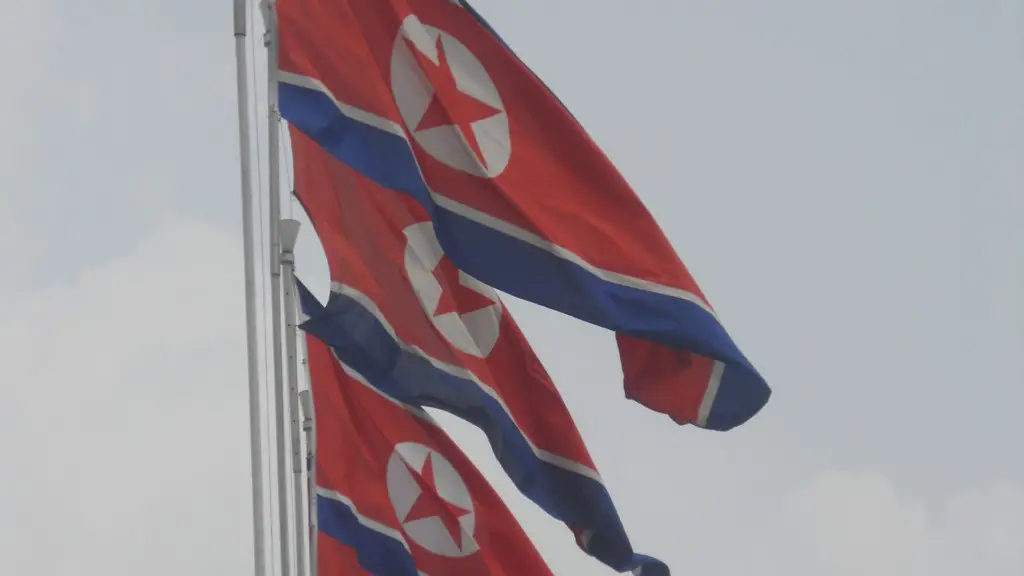How the US Will Attack North Korea
The military capabilities of the United States
The United States boasts some of the most sophisticated and powerful military capabilities globally. With thousands of state-of-the-art weapon systems, defense systems and military personnel, the US is clearly capable of launching a successful attack against North Korea. In addition, the US has the world’s largest nuclear arsenal, which is deployed in the Pacific and in the South China Sea, allowing for a straightforward delivery if the US decides to use them.
However, according to military analysts, a US attack against North Korea would involve a mix of both conventional and nuclear weapons. The deployment of nuclear weapons is usually reserved for extreme cases, where other methods such as sanctions and negotiations have failed. The nature and scope of a potential US nuclear strike against North Korea is highly uncertain and could vary depending on the context and the perceived threat.
The logistical and technological challenges of attacking North Korea
In terms of logistics and technology, the US is well-positioned to launch an attack against North Korea. With the US Navy and Air Force deployment in East Asia and its numerous airbases and military states in the Pacific, a US attack would have little difficulty in reaching North Korean territory. Furthermore, the US has direct access to multiple intelligence sources such as satellite imagery, which would allow for optimum planning of an attack, as well as post-strike survey of the results.
However, the US military is yet to address one of the most important challenges related to launching a successful attack against North Korea: North Korea’s advanced missile defense systems. North Korea has reportedly developed sophisticated anti-ballistic missile defense systems which are capable of intercepting and destroying incoming missiles. This could significantly hinder a potential US attack by reducing the effectiveness of its weapons and increasing the risk of casualties on both sides.
The diplomatic stance of the United States and its relevant allies
At the diplomatic level, the US is yet to voice its clear stance regarding a potential attack against North Korea. While President Donald Trump has made it clear that the US is willing to take a strong stance against North Korea’s nuclear ambitions, there has been no official statement from the US government regarding a military attack against the country.
The US’s allies in the region, such as South Korea and Japan, are likely to play a key role in any potential US attack against North Korea. South Korea, in particular, has expressed opposition to military aggression and instead advocated for continued negotiations and engagement with North Korea. Japan, on the other hand, has remained relatively silent, focusing instead on the more immediate threat of North Korea’s missile tests.
The nature of US military doctrine
The US is known for its military doctrine of overwhelming force and disproportionate responses. In theory, the US would use its extensive military resources to overwhelm North Korea in a short period of time, while minimizing casualties and infrastructure damage. This would involve the use of highly precise ground and aerial strikes against North Korea’s military installations and strategic targets.
However, according to military analysts, there are multiple challenges associated with this approach. It is highly unlikely that a US attack would be able to totally neutralize North Korea’s military capabilities, as it has strong air defense systems and its terrain is very difficult to traverse. Furthermore, it is unclear whether the US would be willing to risk the lives of its personnel by deploying them in an active combat role.
The likely targets of a US attack
In the event of an attack against North Korea, the US would likely focus its efforts on targeting the country’s military infrastructure and key strategic targets. This would involve the destruction of any nuclear sites and military bases, as well as the disabling of North Korea’s air defenses and other strategic systems.
The US would also likely target North Korea’s nuclear weapons and their delivery systems such as missiles. This would be done to ensure that North Korea is unable to deploy its nuclear weapons, which could cause severe damage to US forces as well as its allies in the region. In addition, the US would also target any sites or personnel suspected of being involved in North Korea’s nuclear program.
The potential reasons for an attack
The potential reasons behind an attack against North Korea by the US may be manifold. In the short term, the US may view an attack against North Korea as the most effective way to halt or even reverse North Korea’s nuclear program. In the long term, the US may seek to eliminate any threats posed by North Korea and to maintain US dominance in the region.
At present, the US government has not officially declared any intention to attack North Korea. However, should the situation continue to worsen, it is possible that the US may decide to launch a preemptive military strike against North Korea in order to deter its upcoming provocations.
The potential repercussions of an attack
The potential repercussions of a US attack against North Korea are difficult to predict. The US is highly likely to suffer significant economic losses due to the disruption of its trading routes in the region and the damage to its military assets. North Korea, on the other hand, may see significant physical destruction and significant casualties, particularly in its military.
Furthermore, a US attack could also trigger regional instability as other powers in the region, such as China and Russia, may attempt to intervene. This could potentially lead to a much larger conflict, with a wide range of consequential effects.
The role of the international community
The international community has been largely silent on the possibility of a US attack against North Korea. The UN Security Council has yet to take any formal action on the issue, while other regional powers such as China and Russia have yet to make any public statement on the situation.
Ultimately, how the international community will respond to a potential US attack against North Korea is yet to be seen. However, it is highly likely that the international community will seek to de-escalate the situation and avoid an all-out conflict in the region.
US domestic reaction
Within the United States, the issue of a potential attack against North Korea has been largely ignored. While President Trump and members of his administration have made some vague and often contradictory statements on the matter, there has been limited public discussion of a potential US attack and its implications.
The absence of a public dialogue on the issue could be partially attributed to the fact that most Americans view North Korea as a distant and abstract enemy and are not fully aware of the potentially catastrophic consequences of a US attack against North Korea.
The debate over the efficacy of an attack
The efficacy of a US attack against North Korea has been a source of debate amongst experts and analysts. Some argue that a US attack against North Korea could be an effective deterrent to the country’s nuclear program, while others contend that such a move could further destabilize the region and potentially lead to a larger conflict.
Overall, the issue of a US attack against North Korea is highly complex and multi-faceted. It is clear that the US is prepared to take military action should the situation escalate, but the potential outcome and repercussions of such an action remain uncertain.


